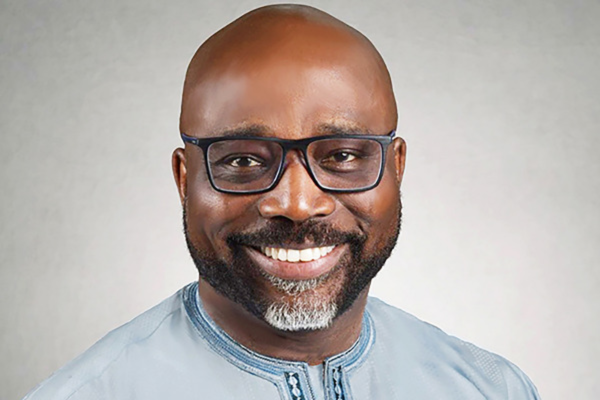
Please join the Department of Anthropology in welcoming Adéwálé Adénlé for his lecture "Indigenous Context Engagement Paradigm (ICEP): Reviving Africa in African Ethnographic Objects in American Art Museums".
Adéwálé Adénlé blurs boundaries among the arts to examine the imbalanced power-knowledge relationships and assumptive appropriations that explore dual realities and logics in cultural-anthropological constructs. His research in the visual arts creates bodies of three-dimensional paintings and drawings that induces slippages between objects/forms and their contexts to deconstruct dominant socio-political norms and historical narratives. In his writings, Adénlé exposes the inadequacies of Western pedagogical and curatorial frameworks utilized in the interpretation and preservation of African ethnographic and spiritual objects in American art museums.
Adénlé has exhibited his paintings and drawings on three continents and has taught the arts in several universities and K-12 programs in the US. Adénlé was the recipient of the 2000 Reuters Foundation Award in the UK, the 2021 Robert, and Phyllis Iles Award from the Center for the Study of Religion at The Ohio State University, and the 2022 Bennetta Jules-Rosette Doctoral Award from the Association of Africanist Anthropology—a section of the American Anthropological Association. He also has worked on several public projects, including the towering murals for the Philadelphia, PA International Airport, Aurora Community Center, CO, and the 13ft. x 8ft. cast bronze sculpture entitled Congo Square (2010), which is installed in Louis Armstrong Park, in New Orleans, LA.
Adénlé obtained his MA in museum studies in 2010, and in 2012, he received his MFA in painting and drawing. He is currently a Ph.D. candidate, specializing in Museum Education and Cultural Administration in the Department of Arts Administration, Education, and Cultural Policy at the Ohio State University (OSU).
Abstract
This paper problematizes Western pedagogical and curatorial frameworks utilized in the display, interpretation, and preservation of African ethnographic and spiritual objects in American art museums. It interrogates the overt consideration of their visible forms and dominant historiography as reductive approaches to authentic engagement. These phenomena provoke my question: How do American art museums effectively (re)present African spiritual objects that were not conceived as arts by those who made them? In answering that underlying question, my study accesses and explores the intrinsic and complex divinity imbued in African anthropological and spiritual patrimonies. It exposes the inadequacies of the prevailing interpretive concepts such as Constructivism, Visual Thinking Strategies (VTS), and other Euro-American frameworks. Using the spiritual objects of the Yorùbá people of Southwest Nigeria as analytical templates, it proposes a new model, Indigenous Context Engagement Paradigm (ICEP), for encouraging a responsive and dignifying interpretation of Africa’s cultural and spiritual objects. ICEP discloses and highlights the study of imbalanced power-knowledge relationships; challenges assumptive cultural narratives and appropriations; and advocates veritable nodes of indigenous African context and voices for representative, interpretive, and preservative reformation in American interpretive spaces. Indigenous-Phenomenological research methodology, infused with the three R's (respect, relationality, and reciprocity), provides me with a trusting admittance into the indigenous knowledge systems in Africa’s creative and cultural spaces and situates the substance of my lived experiences within and outside the Yorùbá cultural and religious milieu.
